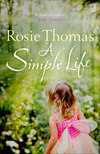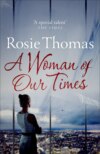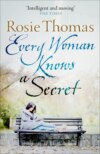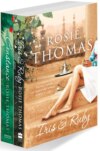Kitabı oku: «A Simple Life», sayfa 5
‘Yeah. They told me all that shit when I was a kid, they talked about it all the time in churchy voices, about how I’m special. They got me from the adoption services in London. Specially chosen, they wanted me so much, you know? I never believed a word of it. I don’t think they do nowadays, either. How could they, seeing what they ended up with was me?’
The small pale face with the angry make-up mostly rubbed away by the night in a barn. The lower lip pushed out, simultaneously aggressive and tremulous. Eyes fixed on Dinah’s face, greedy for attention and affection and reassurance, as well as routinely defiant. Another woman’s child, her history compacted within her. God forgive me, Dinah thought.
‘I had a daughter too.’
Milly gaped at her, silenced for once.
‘She’s fourteen, the same as you. Only I haven’t seen her since she was a little baby. I gave her up for adoption.’
There was a long pause. Milly picked reflectively at the smaller of her nose rings, turning it in its reddened puncture. Dinah could almost follow her thoughts down through their faltering spirals. Finally she breathed the question, ‘Are you saying, like, I could be your daughter?’
‘No. I know you couldn’t be.’
‘How do you? Why did you have her adopted? Was she, kind of, somebody’s she shouldn’t have been?’
‘No. She was Matthew’s baby too.’
It had been a long time, such a very long time since Dinah had allowed herself the luxury of words to vent the pressure. Silence had contained everything like a cold crust over molten liquid. She felt the pressure increasing, cracking the crust and pushing words into her mouth. They were ready to spill out of her mouth now. It was wrong that it should be Milly to hear them, Milly with her own pressing needs. Wrong, but right also.
‘Why, then?’
Dinah turned her head. Through the window she saw the Berkmanns driving off to their Sunday morning tennis game. Kendrick Street, Franklin, Massachusetts, coming alive once more.
‘I’ll tell you, if you like.’
‘Yeah. I’d like. Make a change from going on about me.’
Awkwardly at first, then fast, Dinah began to talk.
FOUR
‘When Matthew and I were first married we lived in a flat, a rented flat over a greengrocer’s shop,’ Dinah said.
How had he changed, since that time? What had brought them both from that time to this?
He was thinner in those days, of course, with coathanger shoulders and a limited wardrobe of jeans and frayed shirts invariably topped with a leather jacket. Laughing was how she remembered him; he put his head back and shoved his fists downwards in his pockets, and his jaw dropped open as he gave himself up to a startling eruption of noise. It made people look round in pubs, Matthew’s laugh.
What had amused them so much, all that time ago?
Eccentricities; their own as much as other people’s. The small comedies of ordinary life. Relief, after some threatened crisis.
There was one time when the two women in the flat upstairs let their bath overflow. The water came pouring through the ceiling, bringing a great scab of soaked plaster down with it on to Matthew and Dinah’s bed. Matthew had been hauling at their sodden bedclothes and shouting in rage at the exposed wet-black laths and floorboards overhead, until he caught sight of his red face in the wardrobe mirror and the imprecations curdled in his throat.
‘You pair of mad tarts,’ he was yelling, ‘you stupid snot-brained couple of cripples … don’t you know how a tap works? You turn it bloody round and the wet stuff stops gushing out before it pisses down all over my bloody bed …’
Dinah was already laughing. Matthew choked on his fury and his fist punched weakly at the pillow he was holding, and then he crumpled backwards on to the mess of the sheets. Clods of plaster pasted themselves to his sweater as he rolled over, coughing and gasping for breath through the convulsions of laughter.
When they had recovered themselves a little they hauled the mattress off the bed and leaned it against the wall to dry. Then Matthew marched Dinah off to a hotel two streets away. It had seemed very grand because there were white towelling bathrobes and a mini-bar stocked with tiny bottles, and they knew it was way beyond anything they could rightfully afford.
‘Don’t even look in that mini-bar,’ Matthew had ordered. ‘See this?’
He had stuffed their overnight belongings into two Tesco carrier bags. From the heavier one he produced two bottles of Rioja.
In the swish mirrored bathroom they filled the bath with scented water and lay in it to drink the wine. Afterwards they went to bed, and watched the coupled reflections of themselves in more mirrors.
Dinah remembered that their conjoined skin looked very pale, young and unblemished, almost greenish in the thin light.
Later Matthew had managed to claim back from their insurers the cost of that night and the next in the hotel. That was like him: the initial bold manoeuvre followed by prudent consolidation.
Their world seemed a benign and sunny place in those days. The Stewards lived in the cramped flat on almost no money, and gazed ahead at an infinite vista of possibilities.
And since then, Dinah thought, between then and now, a narrowing and hardening had taken place. The view had been cut off, as if the two of them had walked into the wide mouth of a tunnel. Then the passage had slowly but steadily closed in, and darkened, until they reached this single point, the present.
The present, in which the past and its contracts were embedded so deeply that the scar tissue of normality had long ago closed over them. Dinah thought of the thin red line of a surgical incision, and the exposure of raw flesh beneath.
‘Just two rooms, really,’ she said, catching herself before the associations ran on and dried the voice in her throat. She would talk, just letting the words come out.
Milly was watching her, not scraping a knife or twisting her hair or picking at her nose-rings, but sitting still, listening.
It had been cramped and noisy, the flat. There was traffic in the street below, day and night. In the evenings when the greengrocer’s shop closed, a metal shutter rolled down with a melancholy roar. The pavement outside the door was often a mess of cabbage stalks and soaking wisps of royal blue tissue paper in which satsumas or Golden Delicious apples had once nested. Sometimes the sad-looking wife of the Greek shopowner came out with a yard broom and swept up.
There was nowhere for Matthew to work in the evenings except at the same table where they had eaten their supper. They would clear away the dishes, and then he could spread out his papers. If he was concentrating particularly hard Dinah withdrew into the bedroom and sat on the bed, knees drawn up, to watch their temperamental black-and-white television or read a book.
When Dinah came out of the bedroom and found Matthew still working she would put her hands on the bony ridges of his shoulders and lean over to look at what he was doing. With her cheek resting against his head she thought, We have everything, we can do whatever we want. Anything is possible.
She loved him simply and entirely, and she knew that he loved her in the same way.
He would tell her, absently, ‘I just want to do this.’
His Manchester accent was still noticeable in those days. It had almost gone now, unconsciously obliterated by years in the south, by years of association with people whose backgrounds were different from his. The flat vowels only came out when he was tired, or angry.
Dinah would nod, pat his shoulder and go on into the kitchen to make tea, leaving him to it. Matthew always worked hard, he had never been any different. He had the ability to concentrate when he wanted to, so that nothing could intrude upon him.
He had worked his steady way through school, the comprehensive in Salford, doing his homework at the kitchen table in his parents’ semi, oblivious to his surroundings, much as he worked now while Dinah watched television in their bedroom. Then there was a first-class degree in chemistry from Manchester University, followed by postgraduate research. After his doctorate he had spent three years at the Laboratory of Molecular Biology in Cambridge, working on DNA sequencing under Sanger’s direction. Dinah didn’t meet him until he came to London, but she felt that she knew the eager, absorbed Matthew of those days as intimately as any of the later versions. He often talked about Cambridge as the most stimulating time of his working life. She could imagine how fervently he had worked, excited by sharing his ideas in a place where even the refectory was equipped with blackboards for the scribbling of spur-of-the-moment formulae.
After Cambridge there had been University College, London. Matthew and Dinah had met in his first week there, introduced at an unpromising party by a cousin of his who worked at Dinah’s ad agency.
With a heavy teaching load as well as his own research Matthew worked like no one Dinah had ever met before. She was accustomed to her own business, where in the seventies work often meant lunch. Within a short time Matthew was heading his own research team at UCL.
But it would be a mistake, an underestimate, to assume that Matthew achieved his successes simply through application. Matthew never wasted effort, and he never lost sight of his main objectives in a fog of detail. He was capable of looking beyond the known horizon, making imaginative conceptual leaps that linked facts to bold theories in beautiful arcs of conjecture. As a research scientist it was his imagination that made him special. Dinah loved him for that imaginative power, and for his intellectual boldness, and his single-mindedness. Matthew never let anything stand in his way.
When they married, within a year of their first meeting, Dinah was working as a very junior copywriter. Always, from the time of their first date, the differences in their working lives were part of the currency of laughter between them. Matthew would try to explain his latest data, his search for non-random associations that might yield the beginning of a pattern and then the solution to some biochemical conundrum, and in turn Dinah would regale him with her creative team’s current struggle to devise an arresting sanpro or lager campaign. It amused them to pretend incomprehension of one another’s business because this arbitrary distance only intensified their closeness. They were certain that they fitted one another exactly.
It was Dinah’s earnings from lager and tampon ads that enabled them to buy their first house; she earned more money in those days than Matthew did.
They agreed that they needed a bigger space than the flat over the greengrocer’s, and it did not take long for them to find what they could afford, just. The two-up and two-down house stood in the middle of a red brick terrace in Finsbury Park, not far from the Arsenal ground. On Saturday afternoons they could hear the huge, single-throated bass howl of the crowd: bursting and subsiding like the voice of some beast in its lair. Afterwards the streets at either end of their little road would fill up with red rivers of supporters chanting their way home. Matthew and Dinah both liked the flavour this proximity gave to the drab area. When Manchester United were away to Arsenal, Matthew would go to the game himself.
During the rest of the week the house and the street were quiet. Their neighbours were either old people who had lived there for a long time, and reminisced about the Blitz and sheltering in the Underground and piano singsongs in the pubs, or else they were young couples like themselves, busy with daytime jobs and evenings and weekends of house restoration.
Dinah and Matthew worked on their house too. They stripped off the woodchip paper to reveal the shaky plasterwork beneath, and sanded clotted gloss paint off doors and window frames. Matthew was surprisingly deft with a plane and saw. The dovetail joints he made dovetailed perfectly and the screwheads were countersunk. He worked in shirtsleeves, whistling, and at times Dinah was surprised to recognise that he looked and sounded like his father at home in Salford.
Piece by piece, cupboards and shelves were constructed to hold their books and clothes and saucepans, walls were painted and secondhand or Habitat furniture was arranged in the rooms.
The house filled up with people. They seemed to have hundreds of friends in those days. Sometimes it took no more than a convivial evening in a pub or in someone else’s house for someone new, part of the infinitely extended lattice of people who knew each other, to cross the casual boundary between acquaintanceship and friendship. Their tolerances were easy, elastic. They were alert, and curious, and they had time to spare for the meandering routes of developing intimacy.
Everyone gave and went to haphazard parties, where unrelated bottles of cheap wine stood in corners and the rooms were filled with dope smoke. There were spaghetti dinners, after which people slept the night on cushions, and hectic weekends in unheated houses in the country, and cheap holidays in Italy or Greece. And in all this time, wherever they were, Matthew and Dinah knew without even talking about it that it was their partnership that provided the foundation for their enjoyment. It was simple. Everything else, the exuberant friendships and diversions and pleasures, sprang from this fertile ground.
To Dinah, Matthew was part of her. To their friends, everyone else who knew him, he was funny and charming but he was also slightly detached. His cold brain kept him separate. But for Dinah he was entirely present, and it gave her a luxurious satisfaction to think that only she knew him entirely. She knew his ambition and his anger as well as his tenderness. She understood him and admired him and she felt that they moved in unison, animating one another.
Dinah conveyed to Milly only the barest outline of all this.
How could recollected and now misplaced happiness be relevant at this distance to anyone but those who had shared it?
It was the next interval that was significant and this was never discussed. Not with Matthew – and if not Matthew, then with whom else?
The surprising answer seemed to be with this farouche teenager who lounged at the table opposite her.
The kitchen was sunlit now, and the light gilded the countertops and a paper-plumed message board and the silver arch of mixer taps.
‘Yeah?’ Milly prompted.
The Stewards did not decide to have a baby, exactly. They were not yet organised enough for that.
It merely happened that Dinah became pregnant.
They were disconcerted, and then pleased. They were not quite the first of their married friends to do it. At some of the parties and dinners now there were Moses baskets parked in upstairs rooms.
‘Without even trying,’ Matthew said when they announced the news. ‘Bang, just like that.’
‘Bang bang,’ Dinah added.
‘Another genius in the making,’ their friends laughed. ‘Chairman of J. Walter Thompson or Nobel laureate?’
Matthew raised his eyebrows. ‘Since when have the two been mutually exclusive?’
The weeks passed and Dinah thought more and more about the curl of cells developing inside her. From books, she charted its progress, the budding of fingers and toes from formless knobs, the unfurling of ears, eyelids, lips. In her imagination she could see it as clearly as if the walls of muscle and tissue that obscured the baby were transparent membranes. And this internal preoccupation was not, could not be, shared with Matthew. It was her own secret, and the secrecy meant that it was faintly – very faintly – tinged with shame.
It was a quiescent foetus, making discernible kicks only rarely. But sometimes Dinah seized Matthew’s hand and placed it on her belly, so that he could discover the unmistakable pressure of a tiny foot nudging beneath the stretched layers of skin and muscle.
‘There,’ Dinah would say, her face radiant. ‘Did you feel?’
‘Yes,’ Matthew wonderingly said, the first time. ‘I did feel it. Squirming in there.’
The rest of the baby was folded around that extended foot, only centimetres out of their grasp.
Dinah saw Matthew’s amazed comprehension that their baby was a reality, not a theory, and in his eyes the sudden leap of awe and love that followed his recognition. She leaned forward to him, so that her mouth touched his.
‘I love you,’ she said. It seemed incredible that there should be so much happiness. Superstitious, she knocked on wood.
The Stewards went to natural-childbirth classes. After the sessions they laughed a lot about the other couples, from the hippy pair who dragged in their own patchwork-covered bean-bag on which to practise panting, to the embarrassed husband who was speechless until a discussion of how to anchor restraining straps in a Volkswagen Passat brought him out in a sudden glow of animation. But for all the comedy, the Stewards were determined that they would have a natural birth. Their baby would have as perfect a start as it was possible to give.
Dinah remembered the last three weeks as a golden time. It was September, and the weather was flawless. The sun slanted at a lower angle, softening the summer’s tired perspectives and revealing the crisped margins of the leaves. The mildewed purplish asters in the Stewards’ neglected garden were draped with spiders’ webs that shone with intricate dew in the early mornings. Dinah was no longer working, and she moved heavily through the house, opening and closing drawers, listening to the unfamiliar sleepy wash of mid-afternoon radio. The rooms were filled with sweet, soft autumnal light.
Matthew spent as much time as possible at home with her. They rested on the bed and he lay with his head against her belly, trying to hear the baby’s heartbeat. Dinah’s fingers wound idly in his hair.
‘Do you think it’s indecent to feel so happy?’ she asked him.
‘There’s no indecency in happiness,’ he answered at once.
Matthew was always sure of what was right, even in abstract matters. His certainty created an opposing tentativeness within her but it also reassured her, as it was meant to do.
Whenever she fell asleep Dinah dreamed wildly. They were overpopulated dreams filled with half-recognised threatening faces, and voices with familiar cadences that seemed very close to the surface skin of consciousness. Once or twice she woke up, blinking and looking around for these faces that seemed too familiar to be allowed to slip back into the subconscious underworld.
She went into labour early one morning. Matthew brought her tea in bed and she sipped it while they timed the first mild contractions.
‘What is this? No one told me it was going to hurt,’ she tried to laugh when they grew less mild.
Matthew drove her to the hospital, exactly as they had planned.
The labour room had green-painted walls and a white-faced clock with beetling black numerals that swam in and out of focus with the wringing contractions.
Matthew and Dinah tried to sing the special song they had fixed on in the classes, and panted with the remnants of the breathing exercises. But Dinah realised with rising panic that she was sweating and gasping, and all the time the pain was rolling over her and shaking her in its grip, instead of allowing itself to be ridden, as she had been encouraged to believe would happen. This was not part of their plan. The certainties were being whipped away.
A Chinese midwife examined her.
‘Quite a rong way to go yet,’ she announced.
‘How long?’
‘You are onry five centimetres.’
The pains threatened to consume her. They came inexorably, the blessed intervals in between growing shorter and shorter. She was being turned inside out, that was what was happening. She thought of a pink rubber kitchen glove, and tried to say something witty about it. She could smell the cheesy, nappy interior of the glove as if it were being held over her mouth and nose, and nausea swelled with the next contraction. Matthew and the midwife stared uncomprehendingly at her. She was trying to be stalwart and funny but she could not even make herself understood. She kicked against the pain, lost her footing and was swept away by it. She began a cry that turned into a scream.
The midwife peered down at her, her fingers around Dinah’s wrist. Her face looked a long way away. There was a connection here, a link. Yes, dreams. She had dreamed this, the faces looking down at her.
‘Now, we don’t want to hear any of that,’ the midwife admonished. ‘What about the rady next doh?’
Matthew sat by her side, holding her hand and stroking her hair. She felt weakly angry with him, for sitting so comfortably with his concern on display. He was patting and stroking away on the periphery, whilst she was being pulled inside out. It was not fair.
‘I want something,’ Dinah said to the midwife, when she could speak again. ‘An epidural.’
Matthew leaned forward. His face loomed. ‘Are you sure?’ he asked gently.
This was only what they had agreed beforehand. Dinah had told him to make sure she didn’t waver, that the nurses didn’t talk her into analgesia she didn’t really want.
‘Yes.’ She couldn’t do it without. ‘I can’t.’
Dinah saw Matthew’s face. He was disappointed. They had planned to give birth with breathing and singing, and she had let him down, and the baby.
An anaesthetist arrived and pushed and prodded agonisingly at her to set up the epidural. At last the anaesthetic took effect and the pain faded grudgingly away, leaving her numb and exhausted.
Matthew resumed his position beside her, holding her hand loosely in his.
‘I’m sorry,’ Dinah said.
‘I love you,’ he told her. ‘I felt so useless, seeing you in pain. It doesn’t matter how we do this, only that we do it right. Yes?’
‘Yes.’
His love and sympathy comforted her, but she couldn’t forget the shadow of disappointment.
It was late in the evening before the baby was ready to be born. It was difficult for Dinah to push because she could not feel the contractions. The Chinese midwife had gone off duty and now there was an older, more motherly woman. She put her hands on Dinah’s belly and Matthew watched the monitor.
‘Ready,’ they kept telling her, ‘here it comes, one, two, now push.’
‘It’s like trying to stir a pea-soup fog with a tennis racket,’ Dinah protested.
The baby was delivered at ten minutes to midnight, a girl.
Matthew wiped Dinah’s face and kissed her mouth. She saw that he was crying. The midwife gave them their daughter wrapped in a paper blanket and Dinah held her. The baby’s tiny face was streaked with blood and mucus.
‘Is she all right?’
‘She’s beautiful, dear.’
Dinah was dazed and exultant. Matthew shaded his eyes, resting his forehead in his hands. His own tears shocked him.
‘I have never seen anything like that,’ he said. ‘I had no idea. And yet, every one of us arrives in the same way.’
‘It’s always a miracle,’ the midwife said.
The new parents’ heads bent over the green-wrapped infant. Wonderingly they touched her clenched fists, the wet, black head.
‘May I take her now, to weigh her and clean her up for you?’
With capable hands a nurse lifted the baby out of Dinah’s arms.
Matthew went to telephone Dinah’s mother and his parents. The nurses made Dinah comfortable and brought her a cup of tea. The delivery room door opened and closed as people came in and out. The baby was crying, a small weak cry, and there was a young woman paediatrician in a white coat examining her with her back turned to the room. Dinah could see her conferring with the midwife.
After a few moments the doctor came and stood at the foot of the bed. Dinah was still balancing her cup of tea. The doctor smiled at her. She was wearing a little make-up, neat pearl studs in her ears, and her hair was held back with a velvet band.
‘Have you thought of a name yet?’
‘Sarah. I think we’re going to call her Sarah.’
‘That’s nice.’
‘Is she all right?’
‘She seems very healthy.’
The cautious words snagged a thread of anxiety in Dinah’s head.
The post-natal ward was dim and quiet when Dinah was wheeled upstairs at last. They put her in a cubicle off the main ward. Matthew had gone home and the baby was in the nursery with the other newborns, but Dinah did not sleep. She lay back against the pillows with her eyes open, listening to the squeak of footsteps in the corridors outside.
In the morning she held the baby again, lifting the wrapped package out of the hospital crib and holding her in the crook of her arm to inspect her. The red puckered face was inscrutable and the eyelids were folded tight shut against her intrusive regard.
From a distance, the nurses watched Dinah watching her baby.
The first bouquets of flowers arrived, crackling in cellophane and looped with pink florist’s ribbon. A student nurse arranged them for her, and set the cards on the bedside locker. Later in the morning Matthew came. He took Sarah and awkwardly held her. Dinah was quiet, and he thought it was natural after the long labour. They were sitting like this in silence when a doctor came to see them, another paediatrician. She was older, more senior than the one who had examined Sarah the night before. She closed a door behind her, screening Dinah’s cubicle from the rest of the mothers.
‘May I have a word with you both?’ she asked kindly, taking a place opposite Matthew.
They waited for a moment, within earshot but isolated from the business of the ward.
‘Is something wrong?’ It was Matthew who spoke. Dinah was looking nowhere. The flowered curtains at the window blurred before her eyes.
‘We are a little concerned. We would like to do some tests on the baby.’
‘Tests for what?’
‘For Down’s syndrome.’
‘Dinah?’
Matthew’s chair creaked as he swung to face her. He wanted Dinah to contradict what the doctor was saying, to deny this for him. He was still holding Sarah, clutching her against him now.
Dinah whispered, ‘I knew there was something.’
The words came out of her on an exhaled breath. Matthew’s shock seemed a greater weight than her own fear. His distress gathered itself, a threat poised somewhere close to her head.
‘What something?’
‘Just … the shape of her head. Her eyes. She seems … closed.’
Dinah could not articulate it any more clearly than that. There was only the conviction that Sarah was sealed up, a package quite unlike the other babies in the ward. They were their own mysteries now but time and intimacy would unravel them. Dinah knew that Sarah was not like them.
The doctor stood up, moved to stand in front of Matthew.
‘May I?’ she asked.
She reached gently inside Sarah’s blanket wrapping. The baby’s tiny red arm was exposed.
‘Look.’
With her fingers she uncurled the tiny flower of Sarah’s fist to expose the minute palm. The flesh was divided by a single deep crease.
‘This is called the simian line. It is an almost certain indication. There is this fold of skin that she has over the eyes, the shape and size of her head and ears, and the degree of hypotonia. Taken together, I’m afraid that the signs are unmistakable.
‘We would like to take some blood, to do a chromosome test. It will take five days for us to get the results. People with Down’s syndrome have an extra chromosome, as you probably know …’
‘I do know that you shouldn’t make any assumptions until you’ve done the tests and have the evidence to show us.’ Matthew’s voice was loud and made harsh by shock.
‘Of course. But all the signs are there, Mr, I beg your pardon, Dr Steward. I have never seen a case in which these signs are present and trisomy has not been confirmed by the chromosome test.’
Matthew’s face was white. There was a twist at his mouth, a distortion that Dinah had never seen before.
‘Last night we were told she was healthy.’
‘Oh, we think she is. Don’t mistake me. About fifty per cent of these children are born with congenital defects, most usually of the heart. But as far as we can tell at this early stage, your daughter is free from any such problem.’
‘Except for the problem itself.’
‘The condition. Yes, that’s so.’
Words, Dinah thought wildly. All these words conjured up and laid end to end to describe her baby.
She was waiting for Matthew to turn to her again so that they could meet this together. All night and through the long morning she had kept the queasy fears at bay with the thought of their unity, and she shivered with longing for it now. But Matthew did not look at her. He was staring down at the baby in his arms. He was rocking her but it was not a comforting motion. It was more as if his body was vibrating, as if his arms jerked with sharp urges that he could barely suppress.
Dinah wanted to hold them both, her husband and her child, drawing them in against the reassuring rhythm of her own heart, but she could not reach. Matthew sat apart from her in the hospital armchair, his arms mechanically jerking, his head bent. She knew that his mind was working, flashing ahead of hers. For the first time, she perceived this as a threat.
‘What will the tests reveal?’
Matthew was a scientist. Results, data. This was his language.
The doctor looked uneasy. Matthew’s manner was too challenging. Distress she would deal with more sympathetically.
‘Not much more than I have told you now, I’m afraid.’
‘There are different grades of this disability, I think?’
‘This condition … Down’s children form a small population of their own. They are different from the general population, but they also differ individually.’
Ücretsiz ön izlemeyi tamamladınız.










